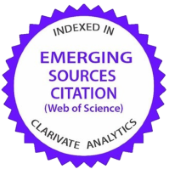Decarbonization of the Tourism Sector: Case Study of Baltic States
DOI:
https://doi.org/10.29036/2dt7ee21Keywords:
decarbonization, sustainable tourism, green infrastructure, climate change, low-carbon travel, renewable energy, ecotourismAbstract
The tourism sector is a significant contributor to global greenhouse gas emissions, primarily through transportation, accommodation, and other energy-intensive activities. The urgent need for decarbonization has been recognized by governments, businesses, and international organizations. This paper explores current challenges, key strategies, and future pathways toward achieving a low-carbon tourism industry. The paper analyses decarbonization indicators of tourism and develops an indicator framework for the assessment of the success of the decarbonization path of tourism in countries with tourism destinations. A case study for the Baltic States was developed to apply decarbonization indicators of tourism and rank neighboring countries based on achievements in decarbonizing their tourism sectors. The case study shows that Estonia received the overall best results in decarbonizing the tourism sector.
Downloads
Downloads
Published
Issue
Section
License
Copyright (c) 2025 Journal of Tourism and Services

This work is licensed under a Creative Commons Attribution-NonCommercial-NoDerivatives 4.0 International License.
Journal of Tourism and Services (ISSN 1804-5650) is published by the Center for International Scientific Research of VŠO and VŠPP in cooperation with the following partners:
- Juraj Dobrila University of Pula, Faculty of Economics and Tourism, Croatia
- School of Business and Administration of the Polytechnic Institute of Setúbal, Portugal
- Szent István University, Faculty of Economics and Social Sciences, Hungary
- Pan-European University, Faculty of Business, Prague, Czech Republic
- Pan-European University, Faculty of Entrepreneurship and Law, Prague, Czech Republic
- University of Debrecen Faculty of Economics and Business, Hungary
- University of Zilina, Faculty of Operation and Economics of Transport and Communications, Slovakia
The publisher provides a free access policy to the Journal of Tourism and Services.





